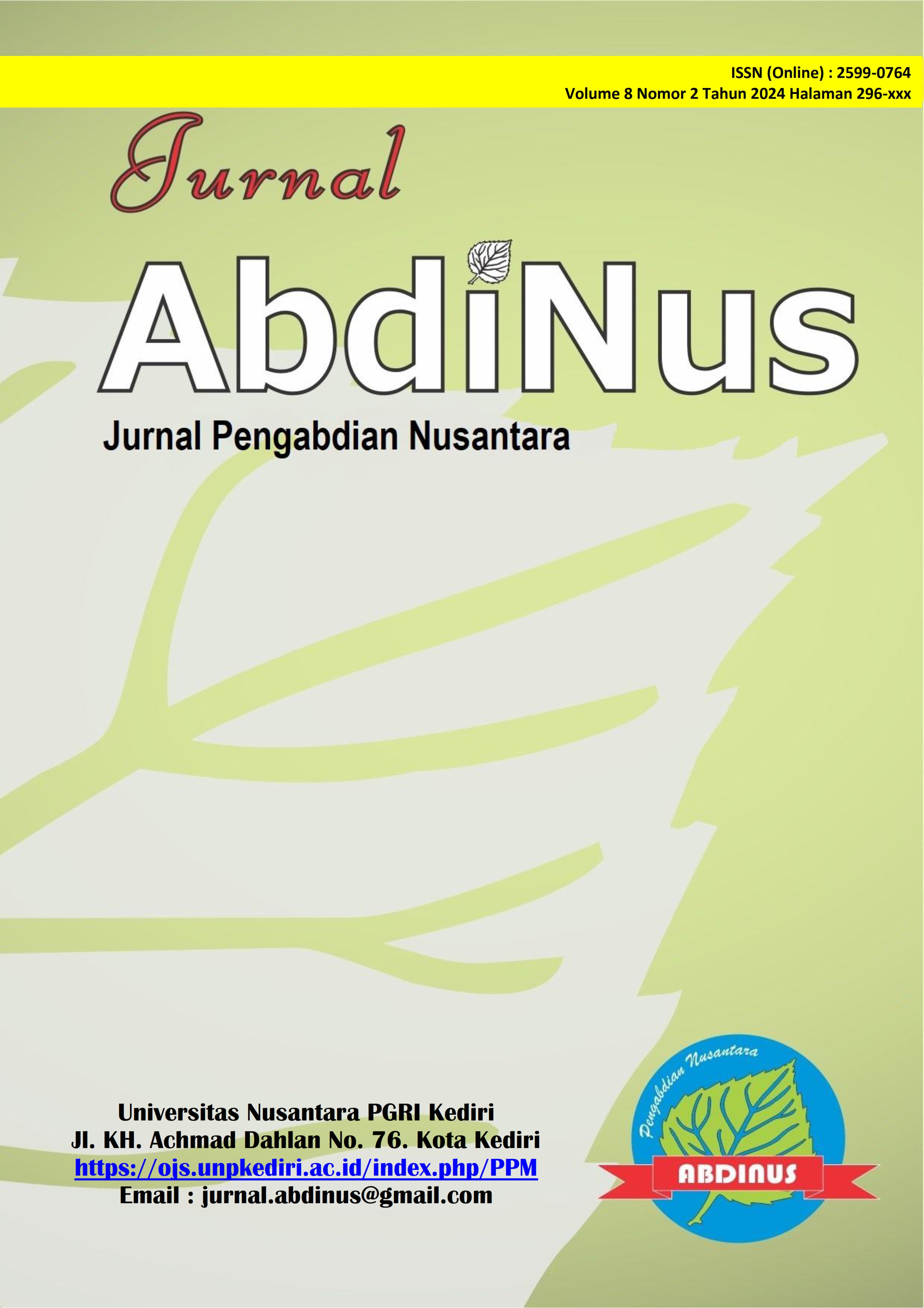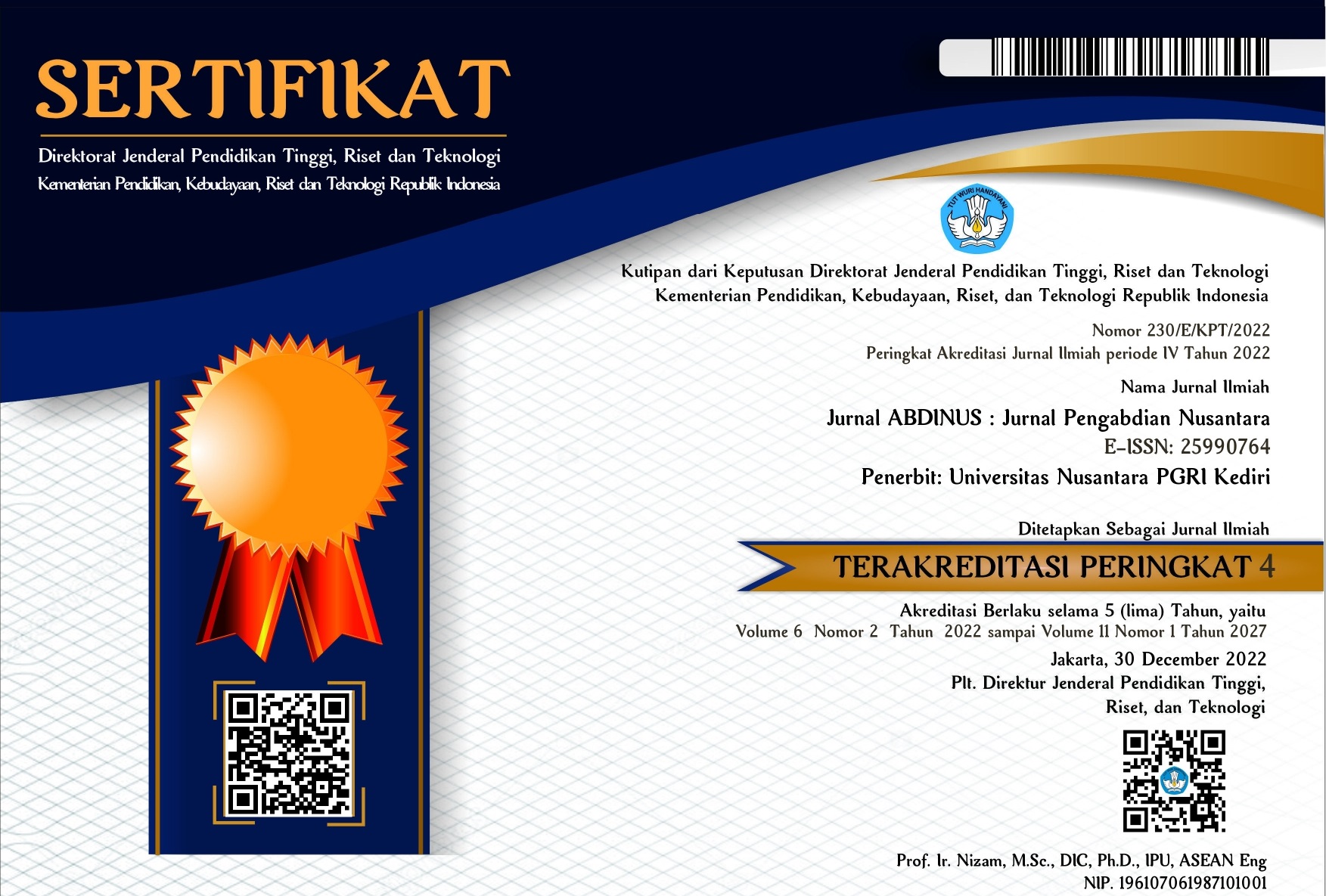Optimalisasi Potensi Lokal melalui Pelatihan Batik Pewarna Alam
Langkah Menuju Kemandirian dan Keberlanjutan Ekonomi Remaja Marginal
DOI:
https://doi.org/10.29407/ja.v8i2.20191Keywords:
Batik training, Natural dyes, EntrepreneurshipAbstract
The batik-making skills training program using natural dyes from waste materials for marginalized youth in Wijirejo Village, Bantul, aims to enhance participants' skills, economic independence, and business sustainability. This program is supported by Nonalia Batik SMEs and the community service team from Yogyakarta State University. The training methods include entrepreneurship theory, batik-making practice, and small business management assistance, including digital marketing. Evaluation results show significant improvements in participants' skills, with some successfully starting their own batik businesses and increasing their income. This program has had a positive impact on the local economy and empowered marginalized youth within their communities.
Downloads
References
Amran, E., Tajib, E., & Tanuwijaya, J. (2023). Meningkatkan Life Skills dan Mentalitas Pada Remaja Putus Sekolah Melalui Minat Berwirausaha. JUARA: Jurnal Wahana Abdimas Sejahtera, 189–199. https://doi.org/10.25105/juara.v4i2.16401
Gunawan, H. (2019). Faktor Penyebab dan Dampak Anak Putus Sekolah (Studi Kasus pada Anak Putus Sekolah Tingkat SLTP dan SLTA di Kecamatan Air Hitam Kabupaten Lampung Barat). http://digilib.unila.ac.id/59497/
Hartono, Y. (2017). Pendidikan nasional dan kualitas manusia Indonesia dalam perspektif sejarah. Agastya: Jurnal Sejarah Dan Pembelajarannya, 7(2), 84–102. http://doi.org/10.25273/ajsp.v7i2.1491
Ho M-HR, Uy MA, Kang BNY and Chan K-Y (2018) Impact of Entrepreneurship Training on Entrepreneurial Efficacy and Alertness among Adolescent Youth. Frontiers in Education, 3, 13. https://doi.org/10.3389/feduc.2018.00013
Kembaren, E. T., Yuslida, D., Tanjung, A. F., Safitri, S., & Sulistianto, S. (2023). Program Edu-Coffeepreneur Untuk Meningkatkan Minat Remaja Putus Sekolah Menjadi Pencipta Lapangan Kerja Di Desa Tingkeum Kecamatan Nisam. Jurnal Pengabdian Masyarakat Bangsa, 1(9), 2141–2146. https://doi.org/10.59837/jpmba.v1i9.483
Lellis, B., Fávaro-Polonio, C. Z., Pamphile, J. A., & Polonio, J. C. (2019). Effects of textile dyes on health and the environment and bioremediation potential of living organisms. Biotechnology Research and Innovation, 3(2), 275–290. https://doi.org/10.1016/j.biori.2019.09.001
Lestari, P. (2014). Ekstraksi Tanin Dari Daun Alpukat (Persea Americana Mill.) Sebagai Pewarna Alami (Kajian Proporsi Pelarut Dan Waktu Ekstraksi). Universitas Brawijaya. https://repository.ub.ac.id/id/eprint/149499/
Özkan Karabacak, A., Süfer, Ö., & Pandiselvam, R. (2024). Coconut husk: A sustainable solution for eco-friendly packaging applications. Environment, Development and Sustainability, 1–30. https://doi.org/10.1007/s10668-024-05154-8
Ramlan, P. (2020). Optimalisasi Karang Taruna dalam Pengembangan Potensi Generasi Muda di Desa Tuncung. MALLOMO: Journal of Community Service, 1(1), 42–49. https://doi.org/10.55678/mallomo.v1i1.307
Rokhmaniyah, M. P., Suryandari, K. C., Fatimah, S., & Mahmudah, U. (2022). Anak Putus Sekolah, Dampak, dan Strategi Mengatasisnya. CV Pajang Putra Wijaya.
Sánchez, J. C. (2013). The Impact Of An Entrepreneurship Education Program On Entrepreneurial Competencies And Intention. Journal of Small Business Management, 51(3), 447–465. https://doi.org/10.1111/jsbm.12025
Vieira, F., Santana, H. E. P., Jesus, M., Santos, J., Pires, P., Vaz-Velho, M., Silva, D. P., & Ruzene, D. S. (2024). Coconut Waste: Discovering Sustainable Approaches to Advance a Circular Economy. Sustainability, 16(7), 3066. https://doi.org/10.3390/su16073066
Vinogradova, N., Novac, A., Jáki, E., & Aranyossy, M. (2023). The impact of entrepreneurship education on entrepreneurial intentions and competencies of students in Moldova. Society and Economy, 45(1), 33–52. https://doi.org/10.1556/204.2022.00026















